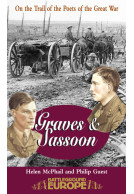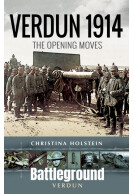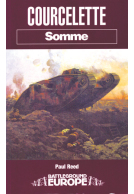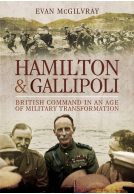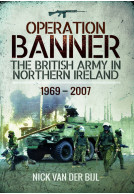Wilfred Owen (Paperback)
On the Trail of Poets of the Great War
Imprint: Pen & Sword Military
Series: Battleground: WWI
Pages: 128
Illustrations: 100
ISBN: 9780850526141
Published: 12th August 1998
Last Released: 14th November 2018
(click here for international delivery rates)
Need a currency converter? Check XE.com for live rates
| Other formats available | Price |
|---|---|
| Wilfred Owen ePub (29.4 MB) Add to Basket | £6.99 |
This is a guide to the battlefields that inspired the young and sensitive poet, whose poems are probably the twentieth century's best-known literary expressions of experience of war. Detailed maps, military diaries, photographs and modern roads guide the visitor through the battlefields. Owen's letters are used extensively, together with his poetry, linking specific places events, vividly describing the suffering of the trench.
This Poems, letters, and other writings of Wilfred Owen, probably the most well-remembered poet of WW1. This is poignant and thought-provoking. Guaranteed to leave you with tears in your eyes.
Books Monthly
A comprehensive guide to Wilfred's service with his battalion, the 2nd Manchesters. A battlefield visitor or armchair traveller will be able to follow Owen's military service and travels in the U.K and through France up to his sad death seven days before the Great War ended.
Amazon Review
Anyone who enjoys the poetry of Wilfred Owen and planning a trip to Northern France to visit his grave will find this book of interest. Well laid out it is made easy for the reader to follow in his footsteps, where it is still possible.
Amazon Review
Very informative and good read.
Amazon Review
WWI War Poet Wilfred Owen dies
4th November 1918
Wilfred Owen was a British poet and soldier, one of the leading poets of the First World War. His shocking, realistic war poetry on the horrors of trenches and gas warfare was heavily influenced by his friend Siegfried Sassoon and sat in stark contrast to both the public perception of war at the time, and to the confidently patriotic verse written earlier by war poets such as Rupert Brooke. He was killed in action at the Battle of the Sambre, just a week before the war ended.









